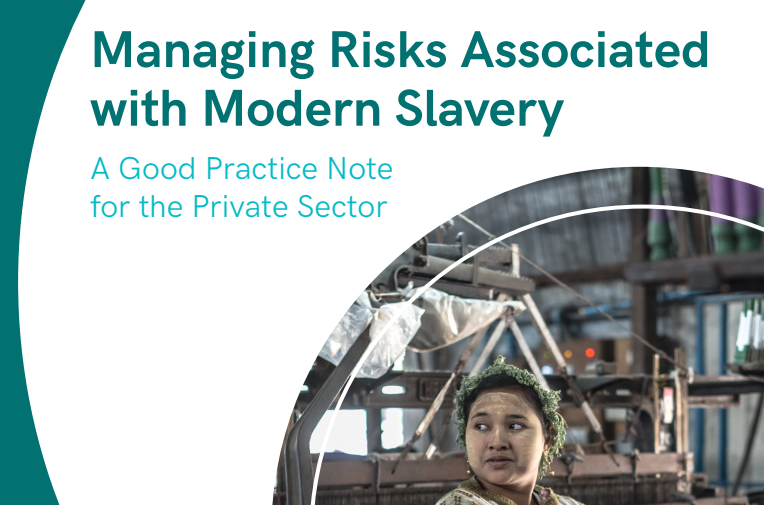Good practice note on managing modern slavery risks
Posted by Steve Gibbons

The private sector increasingly acknowledges the key role that they can play in confronting forced labour risks. This publication distils key concepts and proposes some practical measures – illustrated by best practice examples – that investors and companies can use. From its suggestions to strengthen investors’ environmental and social due diligence or improve companies’ supply chain monitoring, Managing Risks Associated with Modern Slavery provides an understanding of why action is necessary, how to manage and address specific issues, and why cooperation with others is so important.
The Good Practice Note, which was commissioned by the DFIs and produced by Ergon Associates and the Ethical Trading Initiative, provides guidance for DFIs, banks, private equity firms and other financial institutions that provide capital to private companies in emerging markets. The publication offers advice for a range of sectors where risks of modern slavery are high. These risks tend to be greater in the supply chain and are associated with a number of unacceptable practices, such as abusive and fraudulent recruitment (e.g. use of recruitment fees), the withholding of wages, and document retention, etc – some or all of which can leave workers in a situation of modern slavery. Furthermore, the Good Practice Note is of relevance and practical use for a range of company functions, including management, human resources, sustainability and procurement.